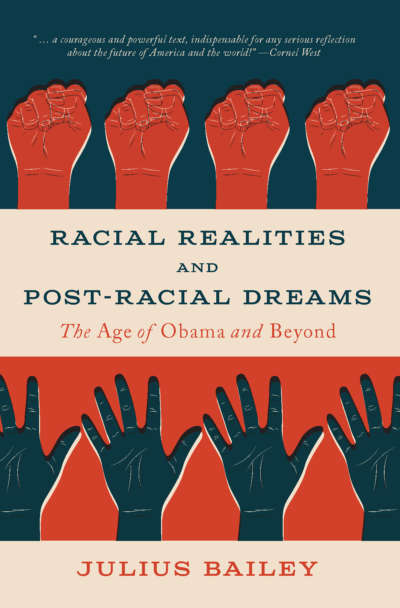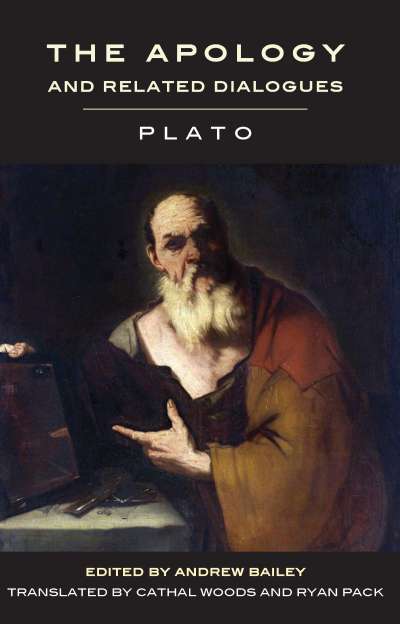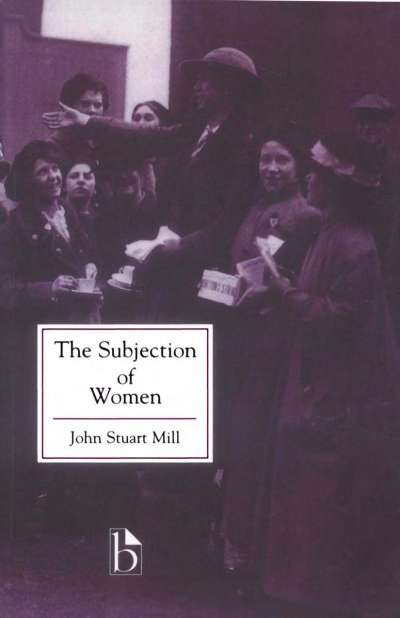Libertarianism is both a philosophy and a political view. The key concepts defining Libertarianism are: Individual Rights as inherent to human beings, not granted by government; a Spontaneous Order through which people conduct their daily interactions and through which society is organized independent of central (government) direction; the Rule of Law which dictates that everyone is free to do as they please so long as they do not infringe upon the rights of others; a Divided and Limited Government, checked by written constitution; Free Markets in which price and exchange is agreed upon mutually by individuals; Virtue of Production whereby the productive labour of the individual and any translation of that labour into earnings belongs, by right, to the individual who should not have to sacrifice those earnings to taxes; and Peace which has, throughout history, most commonly been disrupted by the interests of the ruling class or centralized government.
Comments
“This book is an important examination of both contractarianism and libertarianism. And beyond its intriguing central theses and its pointed applications of libertarian premises to policy issues, it provides an extensive and valuable critical commentary on recent philosophical attacks on libertarian themes.” — Ethics
“The Libertarian Idea is the eminently readable book of a man who knows what liberty is, knows what it isn’t, and cares deeply about the difference.” — Reason
“This book is indeed a major contribution to the philosophical controversy over libertarianism. It ranks in importance with Nozick’s Anarchy, State, and Utopia and Rawls’s A Theory of Justice.” — Liberty
“An original and well-rounded contribution [that] … should be of considerable general interest among political philosophers … [I]t is a thoroughly challenging and quite engaging book.” — Canadian Journal of Philosophy
“Producers and consumers of theory of justice literature should read this book. It is a major work.” — Journal of Politics
“[In] Narveson’s new, bold, and highly readable book … he aims, quite simply, to provide the secure foundations that libertarianism apparently lacks.” — Canadian Philosophical Review
Preface
PART ONE: Is Libertarianism Possible?
Prologue. The Knock at the Door
CHAPTER 1. Liberalism, Conservatism, Libertarianism
- A Preliminary Definition
Liberal/Conservative
Left, Center, Right
Liberal Individualism as One Kind of Conservatism
CHAPTER 2. Liberty
- Another Preliminary Definition
The Subject of Liberty
Liberty and Autonomy
The Nonatomic Individual
What Is Liberty?
Liberty: Freedom to Bring About
Freedom From and Freedom To
Utter Freedom
Interferences: Where the Action Is
CHAPTER 3. Liberty: Negative versus Positive
- Negative and Positive Liberty: Freedom versus Power
Lack of Desire: A Constraint?
Lack of Reason: Another Constraint?
Our Subject: Social Freedom
A Note on Slavery
Is “Positive Liberty” Liberty?
CHAPTER 4. Two Conceptions of Liberty as a Social Concern
- The Two Ideas
What Constitutes Interference?
Coercion
Pressuring
Interference versus Nonassistance
CHAPTER 5. Rights
- Rights Defined
Rights and Duties: Definition or Mere Correlation?
Rights without Duties? So-called “Liberty Rights”
Duties without Rights? Rights, Duties, and Justice
Duties to No One in Particular?
Enforceability
Enforcement and Force
A Paradox: My Freedom Is Your Unfreedom?
Rights Prima Facie or Rights Absolute?
“Side Constraints”
‘General’ and ‘Particular’; ‘Natural’ and ‘Conventional’
Negative versus Positive Rights
Negative versus Positive Rights to Liberty
Libertarianism and Negative Rights
CHAPTER 6. Liberty and Property
- How Liberty and Property Are Related
Property Rights
Property in Oneself
From Liberty to Property in Things
Property Rights and the “Freedom Entails Unfreedom” Paradox
CHAPTER 7. Initial Acquisition
- Getting Ownership Started
Rights to Things Are Rights to Act
Another “Libertarianism Restricts Liberty” Argument
“Acquiring” Not an Act
Arthur’s Argument: Acquisition as Harmful
CHAPTER 8. Property Rights Concluded
- Transfer
Equality
Capitalist Rights Not to Be Capitalists
Resources and Generational Considerations
PART TWO: Foundations: Is Libertarianism Rational?
CHAPTER 9. Introduction
- On “Foundations”
The Options
CHAPTER 10. Intuitions in Moral Philosophy
- Two Kinds of Intuitionism
Metaphysical Intuitionism
Mysteriousness
Futility
Disagreement
Society-Dependence
Generality
Importance
Methodological Intuitionism
Disagreement, Again
Reflective Equilibrium
The Practicality of Morals
Moral “Science”?
CHAPTER 11. Morality
- The Need for Clarity about Morality
‘Personal’ versus ‘Social’ Morality
The Compleat Deontologist?
Conventional versus Critical Morality
CHAPTER 12. Contractarianism
- The Idea of the “Contract” Approach to Foundations
Universality?
Hobbes
The Prisoner’s Dilemma
The Sovereign
Is Cooperation Possible? The Prisoner’s Dilemma
Gauthier’s View
Morality, the Real World, and Prisoner’s Dilemma
Being Able to Complain
CHAPTER 13. The Logic of Contractarianism
- The Basic Appeal
The “Natural Law”
A Note on Utilitarianism
CHAPTER 14. Contractarianism to Libertarianism?
- The Project
A Challenge
The Road from Contractarianism to Libertarianism
Values
A False Start: Autonomy Generalized
Another False Start: An Argument from “Survival”
The Central Argument
The Right to Liberty, Properly Grounded
The Crucial Question
Can We Improve on the Libertarian Option?
Efficiency versus Justice?
The Gospel According to St. Pareto
PART THREE: Libertarianism and Reality: What Does Libertarianism Imply about Concrete Social Policy?
CHAPTER 15. Society and the Market
- The Free Market
Market and Morals
Two Views about Society and the Market
Market Morality as a Public Good
What Is Economic?
Capitalism and Consumerism
Information
Perfect Competition
A Question about Factor Rent
CHAPTER 16. The State
- The State, Government, Public, Associations, Us
A Note on Democracy
The Down Side of Democracy
Political Authority
Authority and Coordination
The Right to Protection
Protection and Nozick’s Argument for the State
Law
Enforcement and the Problem of Punishment
Punishment: The Options
Retribution
The Deterrence/Protection Theory
Restitution
CHAPTER 17. Redistribution
- Redistribution and the State
A Tale of Two Scrooges
Public Goods Arguments
A Note on the “Minimal State”
A Tale of Three Rules about Mutual Aid
A Note on Symphony Orchestras
CHAPTER 18. Insurance Arguments and the Welfare State
- The Libertarian Reply
Insurance and Charity
Overwhelming Majorities and Administrative Overhead
A Defense of Charity
Duties of Charity
The “Social Minimum”
CHAPTER 19. The Problem of Children
- The Problem
Nonfundamental Rights
Children’s Rights
Abortion and Infanticide
CHAPTER 20. Freedom and Information
- Education: Should We Sell the Schools?
The Orwin Thesis
Knowledge
Freedom of Speech and the Ideological Marketplace
Pornography, Hate Literature, and the Like
A Libertarian Postscript
CHAPTER 21. The Public and Its Spaces
- “Public Property”
Zoning Laws
Rules, Regulations, and Bureaucrats
Sell the Streets?
On Discrimination in Hiring
Discrimination, Inefficiency, and the Market
The Public Sector
CHAPTER 22. Defense and International Relations
- Libertarianism and War
Foreign Policy toward Nonliberal States
The Nonrevolutionist’s Evolutionist Handbook
Epilogue. Reflections on Libertarianism
- What Has Not Been Proven
The Lure of Nationalism
Privatization, Trivialization, and the Eternal Yuppie
The Secular Problem of Evil
Advice to Libertarian Political Parties
Does It Matter?
Concluding Note
Notes
Bibliography
Index
Jan Narveson is Professor of Philosophy at Waterloo University.













